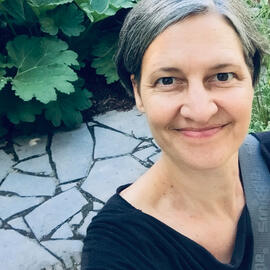
anneke myers
ANU PhD student
in applied sociolinguistics.
also a proofreader and
accredited editor.
born on Anaiwan country.
living and working on
Ngunnawal and Ngambri country.
research
PhD project title:
‘It’s just a respect thing’: Identifying practical ways for the Australian parliament to recognise and value Indigenous languages and their speakers
¶
Speakers of Indigenous languages have the right to understand and to be understood. This is common sense. It is also spelled out in Article 13 of the United Nations Declaration on the Rights of Indigenous Peoples.
¶
My PhD is about how parliamentary committees can show the greatest possible respect for Indigenous languages and their speakers. I hope it will help Australian parliaments to listen more carefully to language speakers and to understand them more fully.
¶
This project is based at the School of Literature, Languages and Linguistics at the Australian National University in Canberra. The PhD should be finished sometime in 2025.
¶
You can read my project description below.
¶
My ongoing thanks and appreciation goes to AIWA mob
(Aboriginal Interpreting Western Australia) and to the AIWA interpreters who have worked closely with me. Thank you all!
¶
Article 131. Indigenous peoples have the right to revitalize,
use, develop and transmit to future generations their histories, languages, oral traditions,
philosophies, writing systems and literatures,
and to designate and retain their own names for
communities, places and persons.2. States shall take effective measures to ensure
that this right is protected and also to ensure
that indigenous peoples can understand and
be understood in political, legal and administrative proceedings, where necessary through
the provision of interpretation or by other appropriate means.United Nations Declaration on the Rights of Indigenous Peoples
PhD project abstract‘It’s just a respect thing’: Identifying practical ways for the Australian parliament to recognise and value Indigenous languages and their speakersThis PhD project aims to strengthen the ability of Australian parliamentary inquiries to work with First Nations interpreters. It explores the practices of federal parliamentary committees when inviting spoken evidence from Australian Indigenous language speakers. I suggest that these witnesses are not always in a position to ‘understand and be understood’ (UNDRIP*, article 13.2) during committee proceedings. This creates the potential for miscommunication, affects the quality of the information being sought by the inquiry, and may cause witness discomfort. I also consider the significance of language respect and recognition by the parliament in the context of the historical suppression of First Languages and the International Decade of Indigenous Languages 2022–2032.The research aims are to:
1. explore current evidence-taking practices of federal parliamentary committees when questioning speakers of Aboriginal and Torres Strait languages;
2. source and share Indigenous expertise on culturally appropriate ways for the parliament to work with interpreters and language speakers before, during and after hearings; and
3. develop and trial practical measures to address language needs and honour the language affiliations of Indigenous witnesses invited to give evidence to a federal parliamentary
inquiry.The approach examines official records of the parliament and interviews with interpreters, parliamentary officers and parliamentarians. It then proposes specific actions for parliamentary committees to consider when planning future committee hearings, informed by First Nations and parliamentary perspectives. This sociolinguistic research design emerged from my experience as a Hansard editor and as a French>English translator and interpreter.
Parliament can act to ensure Indigenous language speakers can ‘understand and be understood’ in their interactions with parliamentary inquiries. Better mutual understanding means committees gathering better evidence.Parliament can empower witnesses to give stronger evidence by making it easy for them to choose which language or languages to give evidence in. Working with interpreters in culturally respectful ways not only allows committees to hear and understand this evidence but also puts witnesses more at ease. Committees could also gain insights into the relationship between country, language and people, and the consequences when connections to language have been lost. Wider benefits of this research may extend to First Nations interpreting services, to users of other minority languages, and to the relationship between the Parliament of Australia and Aboriginal and Torres Strait Islander peoples.*United Nations Declaration on the Rights of Indigenous Peoples, adopted 13 September 2007 (UNDRIP).
editing
proofreading
copyediting
digital content work
¶
Bachelor of Arts (Applied Language Studies)
Bachelor of Laws (Honours)
Graduate Diploma of Legal Practice
Admitted to the ACT Supreme Court
Doctor of Philosophy (in progress)
¶
Accredited Editor (IPEd)
ABN 97 391 189 366
[email protected]
linkedin.com/in/annekemyers/
